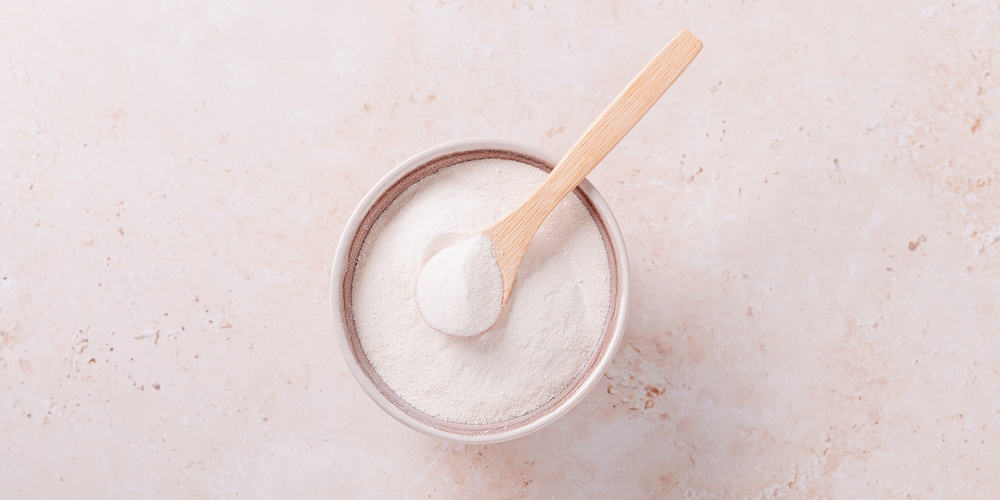Before becoming a supplement, collagen is an essential protein for humans. It is found in a large part of the body.
Bones, muscles, skin, synovial joints, blood vessels, and even tendons contain it. Its presence is not anecdotal as it is estimated to represent 30% of the body’s total proteins, making it the most abundant.
Its action? To play the role of structure and aid in the resistance and elasticity of tissues. Collagen tightens the skin, facilitates bone movement, maintains good bone mineralization, and strengthens the durability of blood vessels.
In the market, we find type 1 collagen, type 2 collagen, and sometimes blends. Are there cases where type 2 collagen should be preferred?
Read also | A pharmacist gives us her tips for buying the best collagen
Type 2 Collagen in Cartilage
To act throughout the body, our collagen slightly differs in composition and structure depending on its location. That’s why we don’t talk about just one collagen, but more than 20 types of collagens or variants, as indicated by this publication.
Thus, the skin contains a majority of so-called type 1 collagen, muscles and blood vessels are rich in type 3 collagen, while the joints are mainly supplied with type 2 collagen.
It is found within the cartilage, consisting of a viscous liquid that allows the sliding of different bones over one another without friction. It is precisely the collagen that gives it these properties.
The Benefits of Type 2 Collagen for Joints
The presence of type 2 collagen is essential for cartilage health, as it helps it be more resistant and to better absorb shocks, notably in athletes.
Collagen supplementation has already shown:
- a reduction in joint discomfort in athletes, in this 24-week study
- an improvement in comfort and symptoms of osteoarthritis according to this 2019 meta-analysis
However, the scientific studies I could find do not necessarily use type 2 collagen. It is therefore difficult to know if the observed effects are attributable to a particular type of collagen or not.

Should We Really Prefer Type 2 Collagen for Joints?
If type 2 collagen is present in the joints, it is not necessarily required to buy supplements that contain only this type of collagen.
Indeed, in supplements, collagen is hydrolyzed: its structure no longer matters since the protein is broken down into small fragments.
It is only within the body that collagen amino acids can act and participate in the synthesis of the body’s native collagen. Although the structure of type 2 collagen is different from other types, it is no longer relevant here.
As for using native type 2 collagen, its structure is far too large to pass through the intestinal barrier. It is therefore not useful directly through oral intake, as specified in the study.
Finally, there is no scientific consensus today on the issue. Therefore, it’s impossible to determine the interest of type 1 collagen supplements versus type 2 when they are hydrolyzed.
Read also | 3 studies examine the effects of collagen on joints, what are the results?



